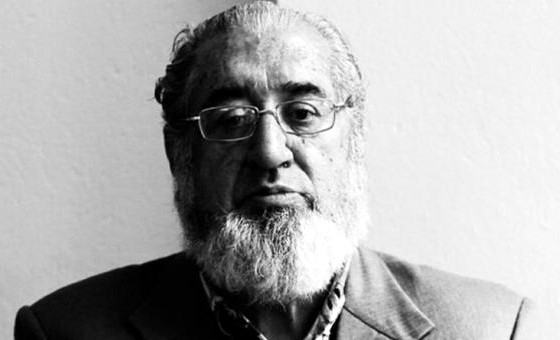Alejandro Moreano (Quito, 1945) is an Ecuadorian writer, essayist, university professor, novelist, literary critic, and political scientist. On four occasions he was the director of the school of sociology at the Central University of Ecuador, and has been a professor at the Pontifical Catholic University of Ecuador, and is currently a visiting professor at the Simon Bolivar Andean University (Ecuador). His latest novel El crímen del tarot (2020), which Moreano has described as “a novel within a novel,” has to do with politics, theater, love and eroticism.
Early Life and Education
Born on January 2, 1945, in Quito, Ecuador, Alejandro Moreano emerged as a significant figure in Ecuadorian and Latin American intellectual circles. His early education was marked by a profound interest in literature and political science, leading him to pursue studies at the Universidad Central del Ecuador. Furthering his academic journey, he obtained his doctorate in history in 2004 from the Universidad Pablo de Olavide.
Academic Career
Moreano’s academic career is distinguished by his contributions as a university professor and director. He held the position of director at the Universidad Central del Ecuador’s School of Sociology multiple times. His teaching experience extends to the Pontificia Universidad Católica del Ecuador, and he currently serves as a guest professor at the Universidad Andina Simón Bolívar.
Literary Endeavors and Cultural Movements
From an early age, Moreano was an avid reader and became actively involved in the cultural scene during the 1960s. He was a part of the tzántzico movement, a significant cultural and intellectual movement in Ecuador. His literary contributions included editing the Revista Z during his adolescence and participating in notable literary publications such as Pucuna, Indoamérica, and La bufanda del sol.
Contributions to Sociology and Political Thought
In 1975, Moreano co-authored “Ecuador: pasado y presente,” a pivotal work in modern Ecuadorian sociology. His profound insights into Marxism and social sciences were further elaborated in his 1990 work “Elogio del Ensayo.” As a respected figure in sociopolitical discourse, he established significant connections with influential movements and leaders, such as CONAIE and Luis Macas.
Journalism and Later Works
Moreano’s journalistic endeavors began in the 1990s with contributions to various newspapers, including Diario Hoy. His critical and analytical skills were evident in his 2002 essay “El Apocalipsis Perpetuo,” a finalist for the XXX Premio Anagrama de Ensayo. His recent novel, “El Crimen del Tarot” (2020), showcases his continued literary prowess.
Awards and Recognitions
Moreano’s novel “El devastado jardín del paraíso” won the unique prize at the First Biennial of Ecuadorian Novel in 1990. His essay “El Apocalipsis Perpetuo” was among the finalists for the XXX Premio Anagrama de Ensayo, and he received the Isabel Tobar Guarderas Prize from the Municipality of Quito in 2002. In 2004, he was honored with the Pío Jaramillo Alvarado National Social Sciences Award by FLACSO.
List of Accolades
- In 1990 he won the Unique Prize of the First Biennial of Novel in Ecuador with his novel El devastado jardín del paraíso (The Devastated Garden of Paradise).
- His book El Apocalipsis Perpetuo (The Perpetual Apocalypse) was among the five finalists of the XXX Anagrama Essay Award.
- In 2002 he received the Isabel Tobar Guarderas Award from the Municipality of Quito.
- In 2004 he obtained the Pío Jaramillo Alvarado National Prize for Social Sciences, awarded by the Latin American Faculty of Social Sciences (FLACSO) in recognition of his outstanding contributions and career.
- In 2007 the Institute of Higher National Studies (IAEN) awarded him the Agustín Cueva Award for Critical Thinking.
Selected Bibliography
Moreano’s literary and academic works span a variety of genres and topics. His notable essays include “El nuevo régimen político” (1981), “La literatura ecuatoriana en los últimos 30 años” (1983), and “Identidad y cambios culturales en la globalización” (1995). His novels, like “El devastado jardín del paraíso” (1990) and “El Crimen del Tarot” (2020), reflect his deep engagement with cultural and social issues.
Legacy and Influence
Alejandro Moreano’s work has had a profound impact on Ecuadorian and Latin American thought. His critical approach to literature and culture, particularly through the lens of Marxist tradition, has influenced generations of scholars and readers. His commitment to exploring themes such as political history, cultural identity, and social critique solidifies his status as a pivotal figure in Latin American intellectual history.
ALEJANDRO MOREANO: Political trend of the current situation
Works
Novels
El devastado jardín del paraíso, 1990.
El Crímen del Tarot, 2020.
Nonfiction
- Ecuador: pasado y presente -coauthor- 1975.
- El nuevo régimen político, 1981.
- La literatura ecuatoriana en los últimos 30 años, 1983.
- Gobierno y Política en el Ecuador Contemporáneo, 1990.
- Universidad, Estado y sociedad, 1994.
- Identidad y cambios culturales en la globalización, 1995.
- La guerra que espera su turno, en el libro “América latina en la guerra global”, 2004
- El apocalipsis perpetuo, 2002.
- América Latina y la descolonización del siglo XX!, en De colonias a Estados Nacionales, Antología editada por Enrique Ayala Mora y otros autores, 2019.
- Neoliberalismo, cultura y sociedad (2011). Chapter in the book Nuestra América y el pensamiento crítico. Fragmentos del pensamiento crítico de Latinoamérica y el caribe.
In 2014, Alicia Ortega Caicedo published “Pensamiento crítico-literario de Alejandro Moreano: la literatura como matriz de cultura,” which gathered Alejandro Moreano’s most representative essays.

